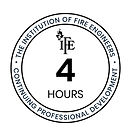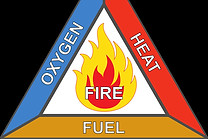

TRAINING COURSES
TRAINING SOLUTIONS
At EMFS, we offer a diverse range of training solutions tailored to meet the specific needs of your organisation. From medical and fire safety to health & safety training, we provide comprehensive courses designed to equip your team with the knowledge and skills they need to excel.
Our training programs can be delivered directly to your site or location of preference, offering convenience and flexibility for your team. Whether you require training for a small group or a large workforce, we can accommodate your needs with group purchase options.
Please note that each individual course will have a minimum attendance requirement to ensure optimal learning outcomes. Our experienced trainers will work closely with you to customise the training experience and address any specific concerns or objectives you may have.
Empower your team with the training they need to succeed. Contact us today to discuss your training requirements and schedule a customised training solution with EMFS.

VIEW OUR COURSES BELOW

MEDICAL COURSES

FIRE SAFETY TRAINING
FIRE SAFETY
AWARENESS
(Minimum 12, Maximum 20 persons)
This course will give candidates knowledge of current legislation, what to do in the
event of a fire, prevention of fire, and clear understanding of evacuation procedures.
-
Fire Procedures
-
What action to take on discovering a fire
-
How to raise the alarm
-
What to do when hearing a fire alarm
-
Who’s responsible for calling the emergency services
-
The location of extinguishers and escape routes
-
Evacuation procedures and dealing with disabled persons.
-
-
Understanding legislative requirements for fire safety in the UK.
-
Chemistry and behaviour of fire.
-
Understand fire precautions in order to prevent and minimise the risk of fire.
-
Understand the different types of extinguishers and method of operation.
-
Video Clips – ‘’Use of fire extinguishers’’


FIRE MARSHALL
TRAINING
(Minimum 8, Maximum 12 persons)


This IFE recognised course will provide the candidate with 4 hours of CPD along with more comprehensive knowledge of fire, fire safety, fire prevention, legislation and, give a clear understanding of their role and responsibilities as a Fire Marshal. This will enable the candidate to assist the management with the recording and monitoring of fire risk in line with the health & safety policy. In addition, candidates will receive practical experience in the use of fire extinguishers.
-
Fire Procedures
-
What action to take on discovering a fire
-
How to raise the alarm
-
What to do when hearing a fire alarm
-
Who’s responsible for calling the emergency services
-
The location of extinguishers and escape routes
-
Evacuation procedures and dealing with disabled persons.
-
-
Understanding legislative requirements for fire safety in the UK.
-
Chemistry and behaviour of fire.
-
Understand fire precautions in order to prevent and minimise the risk of fire.
-
Understand the different types of extinguishers and methods of operation.
-
Identify and understand the responsibilities, duties and role as a fire marshal.
-
Understand fire risk assessment, identify hazards and implement preventative measures.
-
‘Live’ fire practical use of fire extinguishers.
LIVE FIRE
GAS SIMULATOR
Our Fire Simulators will realistically simulate multiple fire settings in a controlled environment. These innovative fire simulators will allow your staff to train with fire extinguishers and prepare them to safely handle a small fire, reducing the risk to life and financial impact on your business. The simulators can quickly create Class A, B and Electrical type fire scenarios under full control of the
trainer. The unit consists of a fuel tray, waste paper bin and electrical intake combination with the ability to control the size of the fire using a regulator attached to the gas cylinder.

YOU THE RESPONSIBLE PERSON
(Minimum 8, Maximum 12 persons)
In addition, we offer our ‘Responsible Person’ course which is aimed at managers
who have a responsibility of or control of a premise and will give delegates the skills
and confidence to manage Fire Safety in their organisation’s premises to meet
employer obligations under the Regulatory Reform (Fire Safety) Order 2005. At the
end of this course delegates will understand their legal obligations and be proficient
in the theory and practice of Managing Fire Safety and Hazard Spotting.

LEARNING OUTCOMES
Students will know the legal obligations and responsibilities in relation to fire safety for employers or persons in control of non-domestic premises. Understand all general principles that apply to escape routes and fire safety provisions.
The student will also understand how to provide
simple escape route solutions to common issues with building layouts. Understand how to maintain a fire risk assessment for a premise. All the previous knowledge acquired through the course will
now be applied, to find solutions to problems through discussion. Understand the difference between risk assessment and auditing, the importance of auditing and how it supports the risk assessment and, will understand how to spot common hazards in the work place and what solutions to apply.
TOPICS COVERED
Employer’s legal responsibilities under the Regulatory Reform Order 2005
Competent persons and relevant persons
Fire records and compliance documents.
Fire inspections.
Enforcement from the courts
Enforcement from the authorities
Construction
Corridors, stairwells
Special Situations, Inner rooms, Dead ends
Travel distances
Signage
Lighting
Methodical approach to the fire risk assessment
Five step method
Recording
EVACUATION CHAIR TRAINING
Equip your staff with the confidence and skills to safely evacuate individuals with mobility impairments during emergencies with our comprehensive training course. Lasting 3 hours, our training covers both theoretical knowledge and hands-on practical experience in the proper usage of evacuation chairs, supplemented with crucial health and safety advice.
KEY FEATURES
Certified Training: Our certified course is designed for a maximum of six participants, ensuring personalised attention and effective learning outcomes.
On-Site Training: Conducted at your premises, our training utilizes your own evacuation chairs and stairwells, providing real-world scenarios and hands-on experience tailored to your environment.
Convenience: Eliminate the need for travel arrangements as your staff receive training in their familiar work environment.
Practical Learning: Participants engage in extensive practical exercises with the equipment, simulating real emergency evacuation scenarios for maximum preparedness.
Comprehensive Curriculum: Our course combines theoretical knowledge with practical skills and essential health and safety guidance, ensuring thorough understanding and competence.
Certification: Upon successful completion of the course, all attendees receive a certificate, demonstrating their proficiency in evacuation chair usage.

HEALTH & SAFETY TRAINING

RISK ASSESSMENT
AWARENESS TRAINING
(Minimum 8, Maximum 15 persons)
Our Manual Handling Training is designed to equip employers and employees with the essential knowledge and skills required for safe manual handling practices. By adhering to the principles and practices outlined in our course, organisations can ensure compliance with the Manual Handling Operations Regulations 1992 (MHOR) and create a safer working environment.
This course covers a wide range of topics, including understanding the risks associated with manual handling, conducting risk assessments, and implementing appropriate control measures. It provides practical guidance on managing manual handling tasks effectively while prioritising the health and safety of employees.
Upon completion of the course, participants will:
-
Gain a clear understanding of manual handling and its associated risks.
-
Recognise the legal duties of employers and employees regarding manual handling safety.
-
Identify common causes of injury and potential long-term health issues resulting from unsafe manual handling practices.
-
Learn how to conduct effective manual handling risk assessments.
-
Acquire techniques for avoiding manual handling where possible and safely handling loads when necessary.
Join us for our Manual Handling Training Course and empower your team with the knowledge and skills to promote a culture of safety and prevent workplace injuries.
MANUAL HANDLING
TRAINING
(Minimum 8, Maximum 12 persons)
Our Manual Handling Training is designed to equip employers and employees with the essential knowledge and skills required for safe manual handling practices. By adhering to the principles and practices outlined in our course, organisations can ensure compliance with the Manual Handling Operations Regulations 1992 (MHOR) and create a safer working environment.
This course covers a wide range of topics, including understanding the risks associated with manual handling, conducting risk assessments, and implementing appropriate control measures. It provides practical guidance on managing manual handling tasks effectively while prioritising the health and safety of employees.
Upon completion of the course, participants will:
-
Gain a clear understanding of manual handling and its associated risks.
-
Recognise the legal duties of employers and employees regarding manual handling safety.
-
Identify common causes of injury and potential long-term health issues resulting from unsafe manual handling practices.
-
Learn how to conduct effective manual handling risk assessments.
-
Acquire techniques for avoiding manual handling where possible and safely handling loads when necessary.
Join us for our Manual Handling Training Course and empower your team with the knowledge and skills to promote a culture of safety and prevent workplace injuries.

HEALTH & SAFETY FOR EMPLOYEES:
ESSENTIAL TRAINING FOR WORKPLACE SAFETY
(Minimum 8, Maximum 12 persons)
Health and Safety for Employees: Essential Training for Workplace Safety (Minimum 8, Maximum 12 persons)
A comprehensive understanding of health and safety is crucial for all workers, regardless of their role or industry. Our Health and Safety training for Employees is designed to provide essential knowledge and skills that apply to every work environment.
This course covers a wide range of health and safety topics, including measures to prevent and control risks, and the responsibilities of employees in maintaining a safe and healthy workplace. Participants will learn about key aspects such as display screen equipment (DSE), manual handling, work equipment, fire safety, and electrical safety.
By the end of the course, participants will gain a thorough understanding of:
-
The main hazards and risks in the workplace and their control measures.
-
Their responsibilities under health and safety legislation, as well as those of their employers.
-
The importance of risk assessments in identifying and mitigating hazards.
-
Specific hazards and health effects associated with various work activities, along with controls to minimise risks and prevent harm.
Join us for our Health and Safety for Employees course and empower yourself with the knowledge and skills to contribute to a safe and healthy working environment.
Get in touch
Downside Farm, Woodway Road, Blewbury, Didcot, Oxfordshire, United Kingdom, OX11 9EX
01235 430466

















